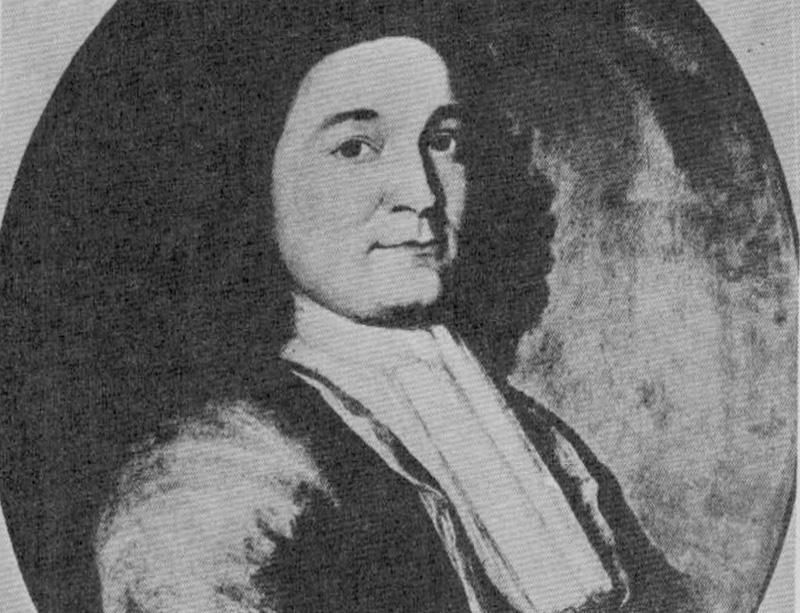
HISTORICAL EVENTS THAT TOOK PLACE ON THIS DAY IN CANADA
16 October

Sir William Phips (1651-1695)
Phips' Armada Confronts Frontenac at Quebec
Britain made a number of attempts to destroy French power in North America before Amherst and Wolfe staged their successful campaigns from 1758 to 1760. One of them was in 1690, and its leader was William Phips, a former ship's carpenter and sailor. He did not learn to read or write until he was thirty, when he went to live in Boston. Then he got lucky. He married a wealthy widow, and found a sunken Spanish ship which had a treasure of £300,000 of which he was allowed to keep£16,000.
Phips was now a great figure in the public eye, and early in 1690 was put in charge of an expedition to capture Port Royal in Acadia. He was completely successful, made the inhabitants of that part of Acadia swear allegiance to William and Mary, and plundered them unmercifully. He became an even greater hero.
In 1690, Phips was put in charge of an expedition against Quebec. He accepted the task—modestly for him—saying, "The plan is well formed and I am the best man to handle it." Actually he knew practically nothing about military tactics, and in this campaign he was up against a wily warrior, Count Frontenac. When his armada of 32 ships arrived off Quebec on October 16, 1690, Frontenac was prepared.
Phips sent a young officer ashore to demand Frontenac's surrender. Frontenac had him blindfolded, and rushed through the streets to the summit. The young officer was made to climb over barricades and other obstacles, and was breathless when he appeared before Frontenac. The young officer said that he came in the name of William and Mary, King and Queen of England, to demand instant surrender. Frontenac replied that he knew no William, a lawful king, but only William the usurper. Then he added, "Ma défense se fera par la bouche de mes canons."
Phips bombarded Quebec for a few days, and tried to land troops at Beauport. Although he had a far superior force, he did not have the military experience to cope with Frontenac, and had to give up the battle after a week of frustration. The chapel at Quebec, Notre Dame des Victoires, commemorates the occasion.
OTHER NOTABLE EVENTS ON THIS DAY IN CANADIAN HISTORY
16 October
-1679 A meeting of the Quebec Council voted that liquor should not be taken to Indian villages.
-1820 Cape Breton was returned to Nova Scotia following the proclamation of October 9.
-1869 Joseph Howe left Fort Garry after a fact-finding trip for the Government.
-1911 Winnipeg received the first electric power.
-1914 The first contingent of Canadian troops for World War I landed at Plymouth.
-1918 Canada and the States made a reciprocal trade arrangement whereby the States took wheat and flour from Canada.
-1942 R.C.M.P. patrol vessel St. Roch completed a voyage from Vancouver to Halifax via the Arctic. The ship left Vancouver June 2, 1940.